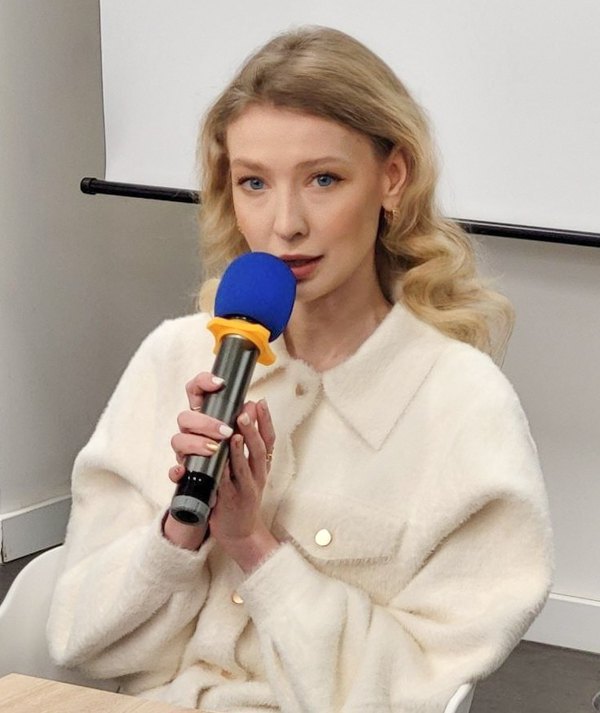
A new broom
It is known that the issue of Ukrainian children stolen by Russia was raised during the talks with the US in Riyadh. What is the position of the new team on this issue? What has changed or is changing?
When the Republican candidate won the US presidential election, I personally did not have a premonition of any radical turnaround on this issue. After all, for Republicans, children, family, and religion are among their key values.
But...
Then it became known about a number of decisions to reduce or even stop funding for various programmes that were run through the US Agency for International Development (USAID). And this affected some non-governmental organisations in Ukraine that, for example, provided services for the psychosocial adaptation of children or were even involved in the process of their return or reintegration. So, frankly, it was an unpleasant surprise.
And then there was another one - the termination of funding for the Yale Humanitarian Research Lab.
More precisely, their programme, which concerned the documentation of crimes against Ukrainian children.
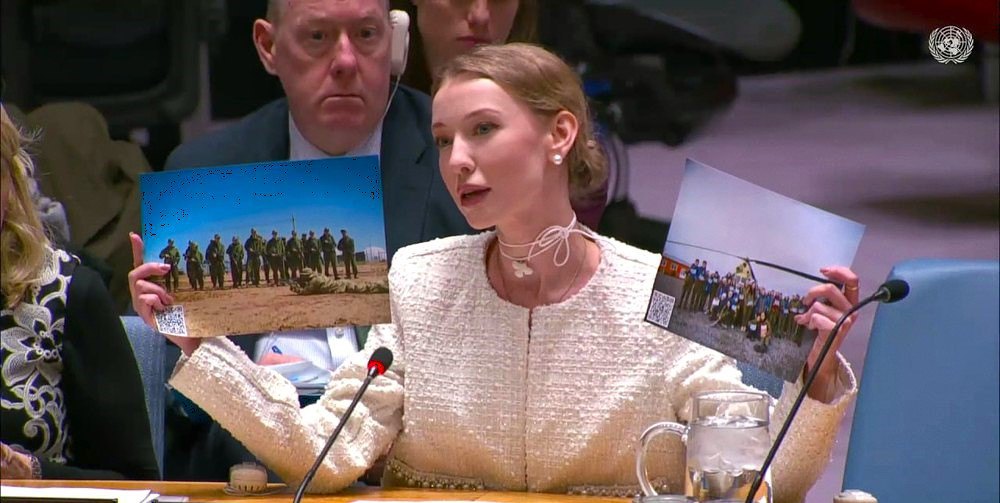
This is a big question, because I've seen all sorts of wording in the American press. But from what I saw on their official website in March 2025, they were working quite dynamically in the context of other armed conflicts, for example, in Palestine, Yemen, and Lebanon. In other words, the work is actually continuing, but the activities related to the identification of Ukrainian children have just been suspended. Now they have been resumed for six weeks with the sole purpose of transferring the collected information to the relevant authorities. This is quite logically in line with the statements of the US side about ‘reaffirming support for efforts to return Ukrainian children’. At the same time, this is a standard procedure when closing programmes.
And again, you will see in the press: the data will be transferred to Europol and the State Department. But it seems to me that in this case, the competent authorities are primarily the authorities of Ukraine, because, in fact, these are our children, our citizens, some of whom have the status of orphans and children deprived of parental care.
Does the closure of the programme in general undermine the ability to identify our children deported or displaced by Russia?
This is a different question. Firstly, it is now important to audit the entire evidence base that our partners have managed to collect. And secondly, to allow a situation to happen again when a non-governmental organisation, in our case the Yale Humanitarian Research Labhas information about 30,000 Ukrainian children (I quote the figure from Nathaniel Raymond's interview) and this is a unique database that can be lost because of deletion is a shame. In any case, Ukraine should be the main depositary and manager of such information.
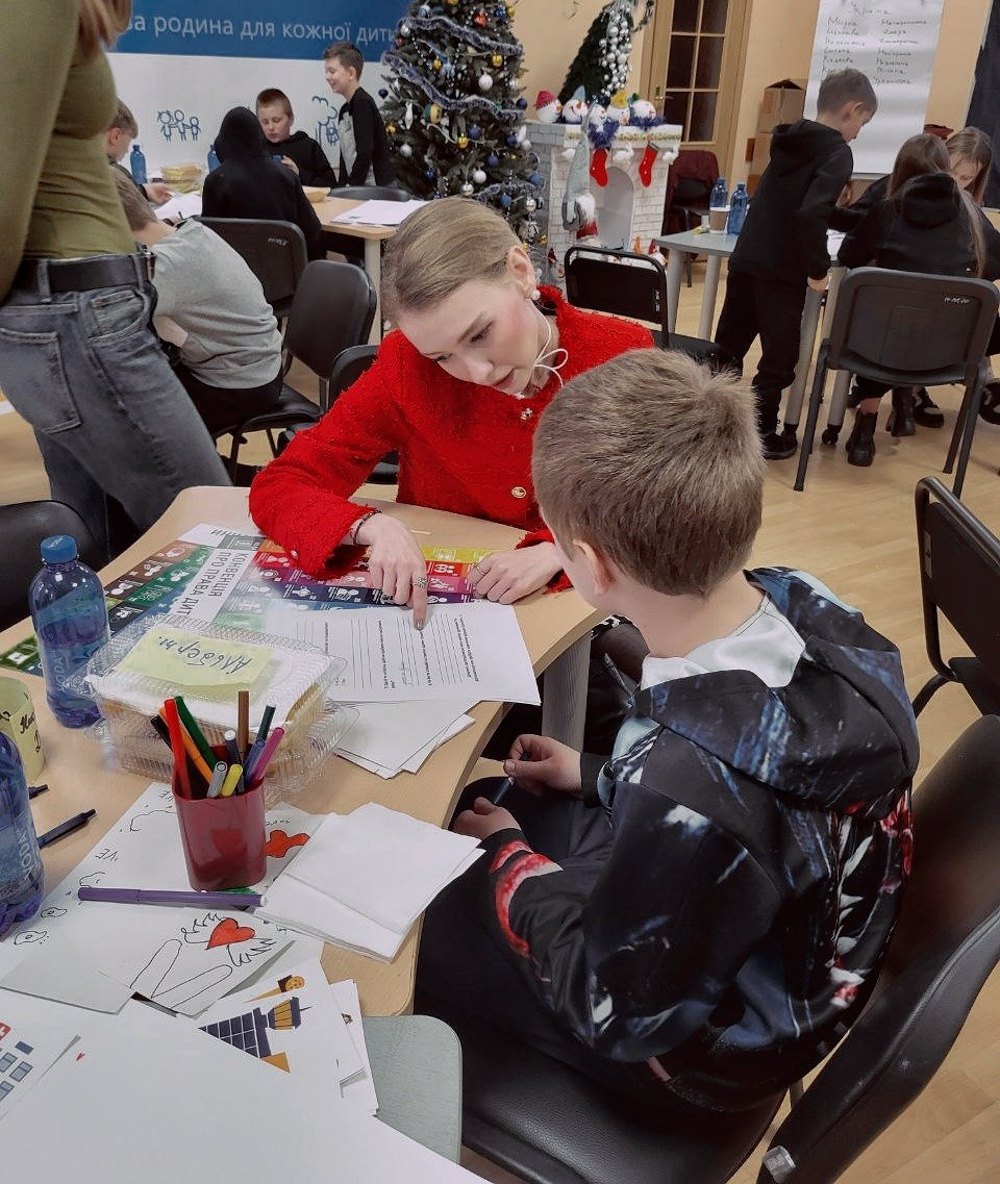
And what will happen next in the context of these alarm bells? For example, with the participation of the United States in the International Group for the Investigation of Russian War Crimes in Ukraine, including the deportation of Ukrainian children?
First of all, we should now be critical of any news about US domestic or foreign policy, including its participation in the International Child Recovery Coalition or the Joint Investigation Team, which documents war crimes and crimes against humanity. Because there was news that the United States had withdrawn from the International Centre for the Investigation of the Crime of Aggression, and it started: that's it, no one is documenting the deportation of Ukrainian children anymore, no one is going to collect evidence. But this is, you know, so salty and sharp. Because aggression is one international crime, and war crimes, including the deportation of Ukrainian children, are quite another.
We must understand that the US membership in an organisation that documented the crime of aggression was something unprecedented and unique. From a series of obvious and incredible things. Because their attitude to this particular international crime, by the way, as well as that of a very large number of other states that are our partners, is quite specific. And the rollback that we are witnessing - the absence of any reference to Russia as an aggressor or condemnation of aggression in the UN General Assembly resolution proposed by the United States - is simply a return to their standard line in foreign policy.
At the same time, as far as I know, there has been no announcement that the United States has withdrawn from the Joint Investigation Team, nor has it withdrawn from the International Coalition for the Return of Ukrainian Children.
But everything seems very uncertain, doesn't it?
We have another example - the International Criminal Court. Since 2023, the United States has been providing them with evidence related to the deportation of Ukrainian children. I don't know if this will continue under the new administration. It's hard to imagine how, in the face of sanctions pressure on the ICC from the United States, the Americans will suddenly continue to do so. So, unfortunately, the ICC is in a very difficult position now.
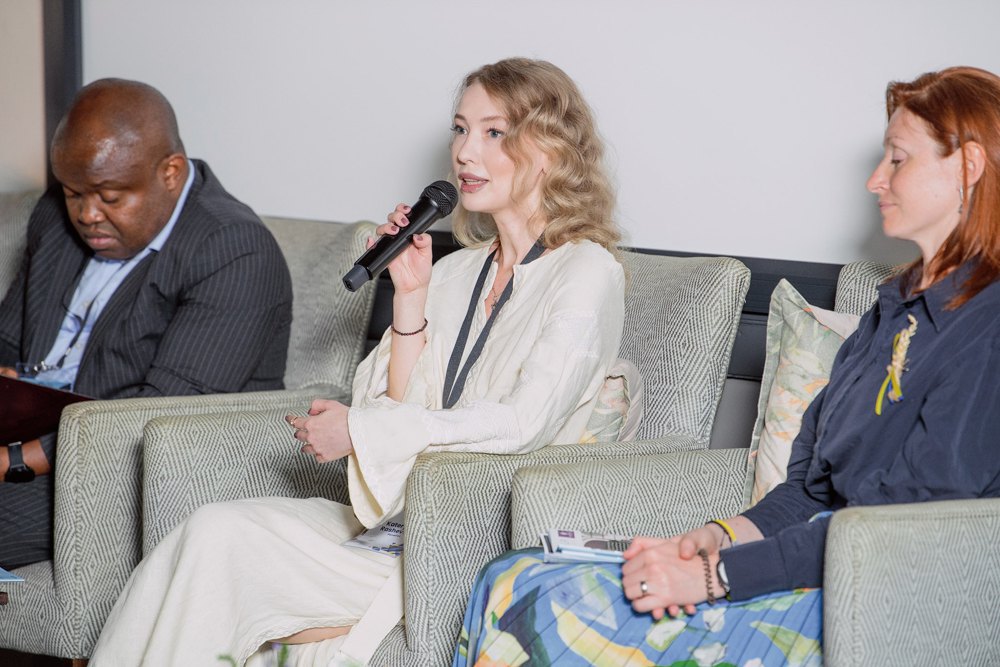
However, I hope that the investigation itself will continue, that its pace will not change, and that we will at least come up with some interim solutions. But love the truth, God, love the truth. A deportation case will not be good if it involves 33 children - those confirmed by Virginia Gamba, the UN Secretary-General's Special Representative for the Protection of Children in Conflict Zones. Or about two hundred confirmed by the UN Human Rights Monitoring Mission in Ukraine. These are very small numbers. And if the ICC operates with the same data, then it is not impossible to get a decision against Maria Lvova-Belova (and I think the ICC will be bolder with her). But even if it is, it is difficult to assess. On the one hand, it seems to be a confirmation of an international crime. On the other hand, this is a ball in the court of the Russian Federation and its propaganda that we lied about the scale and cannot be trusted at all. Because they will not comply with the ICC's decision anyway.
We are working with the figure of 19,546 children who were deported or forcibly removed by Russia and whom we were able to verify. At the same time, in the occupied territories, for example, the process of removing children from their families continues. So why doesn't the number change?
The Ministry of Justice has now taken over the register. It is cleaning it up. They are looking to see if someone has already reached the age of majority or if the child's status as a deportee or forcibly displaced has changed or has not been confirmed. In other words, they compile a list that can be used for the return of Ukrainian children. And then we will see the updated figure.
Why, for example, is the number not growing? Because it is often very difficult to identify a child. And when the Russians say that they have handed over some children to Russian families, they may mention a number, but without personal data. What do you add to that register in this case? Empty cells with a number? Indeed, it is a little frustrating that we have been talking about 19,546 children for two years now. But I propose to look at another figure - 1,256 children whom we have returned from the occupation, from deportation, from forced displacement. This figure is growing. And this is a great positive.
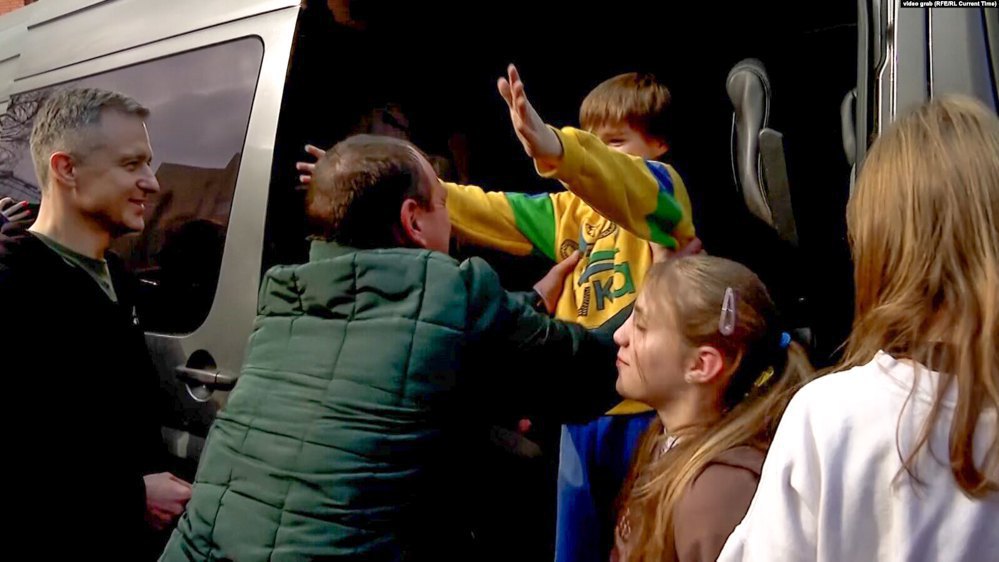
How can Russia take advantage of this moment of uncertainty in the future actions of the United States?
There is now a great threat that Russia will be able to promote its own vision. For example, Donald Trump said that he had never known about the deportation of children, about its scale, and now that he has learned, he was very impressed and will help. But any narrative can be imposed on a person who is not very knowledgeable. And unfortunately, Russian propaganda is very powerful in producing them. The lies they create have a part of truth or distorted reality in them, and so they are easy to believe. Especially given that Ukraine is at a disadvantage, because children are under Russian control and can be told anything. For example, that they don't want to return home, that they don't know the legal representatives who come to pick them up, that they love Russia and now consider it their homeland, that they have Russian citizenship, that they want to live there. These are not my assumptions, but the narratives that are already being actively promoted.
So, isn't the biggest risk in who will form the image of the US president and what kind of image?
We can only assume what the Russians are telling the American side on this topic. But it is very positive that we raised the issue of deported children at the talks, although there are many, many humanitarian aspects that could be discussed. Ukraine continues to say that this is a priority for us. In fact, it is also important in the context of Ukrainian society. After all, how can you live in a country from which children were stolen and which has not done everything to return them, which has been forgotten by everyone, and which has followed the Crimean scenario?
During the technical consultations in Riyadh, I can assume that Ukraine worked with a list of children whom Russia should return as a matter of priority. These are children in a state of extreme vulnerability: orphans, children deprived of parental care, children who have been removed from their families by the Russians in the occupied territory. This means that a child can be taken under the care of a family from Novosibirsk, taken there, and then the child cannot be found. Because although the guardian has no right, according to Russian law, to change personal data, we have already encountered such cases. And the Russians served it up with a sauce: oh, this child fell in love with the Russian foster parents so much that he decided to change his surname to theirs. And when the child turns 14, with the consent of the guardian, everything can be changed. So if they need to hide the child, they will do it successfully.
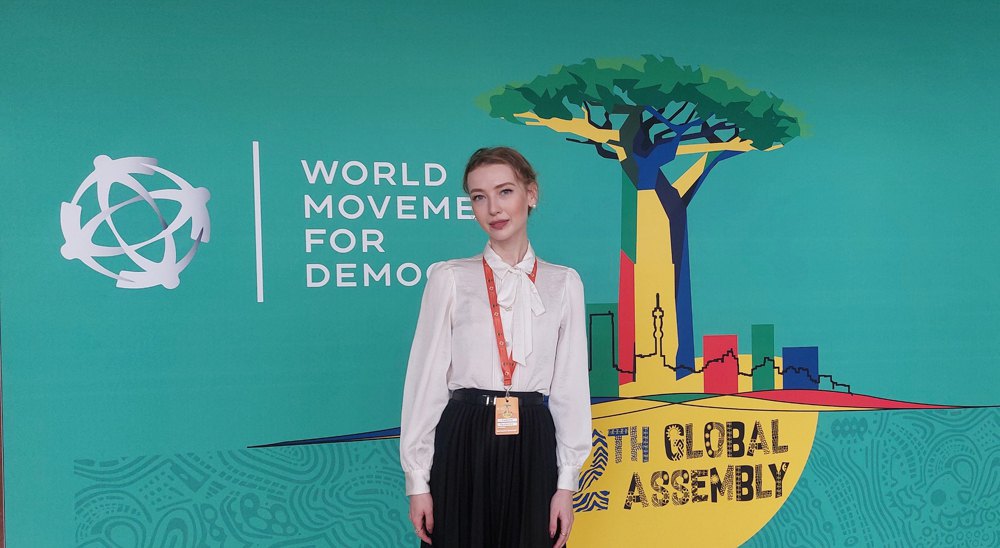
And there are children whom we either return now or never return. For example, young children from the Kherson Regional Children's Home, 20 out of 48 of whom have already been transferred to Russian families, even according to the Russians. Do you think they will return them? The probability is low. Moreover, young children adapt. Otherwise, the Russians are using the same tactics as with detained civilians. They simply say: we don't have any. We say: ‘You have Marharyta Prokopenko, we know that she is in the family of Sergei Mironov.’ - ‘No, it's not her, where did you get it from.’ - ‘We will give you genetic material, we have Marharyta's brother and sister in Ukraine in a foster family. And even if they agree to a DNA test, do you think they will conduct it properly? Or maybe they will allow some independent monitoring mission, a medical team, to conduct the examination?
Unchanged goals
Given this, are there any signs that Russia will actually make concessions on this issue?
The fact is that we have to keep fighting, no matter what. Instead of whining, we have to make demands. And let some of us laugh and say that we are naive and Russia will never agree to this. That's great. Because if we start from this position, we can immediately surrender. That is simply destructive. And Ukraine must stand by the idea of changing the return process to the end, and try any options to achieve this. After all, the Russians have been dictating the terms until now. And it is not profitable for them to return a large number of children. It is especially unprofitable for them to return children who can testify at the International Criminal Court. Therefore, they are obviously returning those who remain in the occupied territories, who were not forcibly displaced or deported. Especially often they return those who have relatives somewhere in Ukraine or Europe.
Moreover, Russia, for its part, is trying to create the impression that all the Ukrainian children it has taken away as part of orphanages are in Russian families. They openly talk about 380 children as of October 2022, but there are definitely many more. And we continued to document the transfer of children to Russian families throughout 2024. However, I am sure that most of these children still remain in orphanages. They scattered them in different regions, in different institutions, to make it easier to assimilate them.
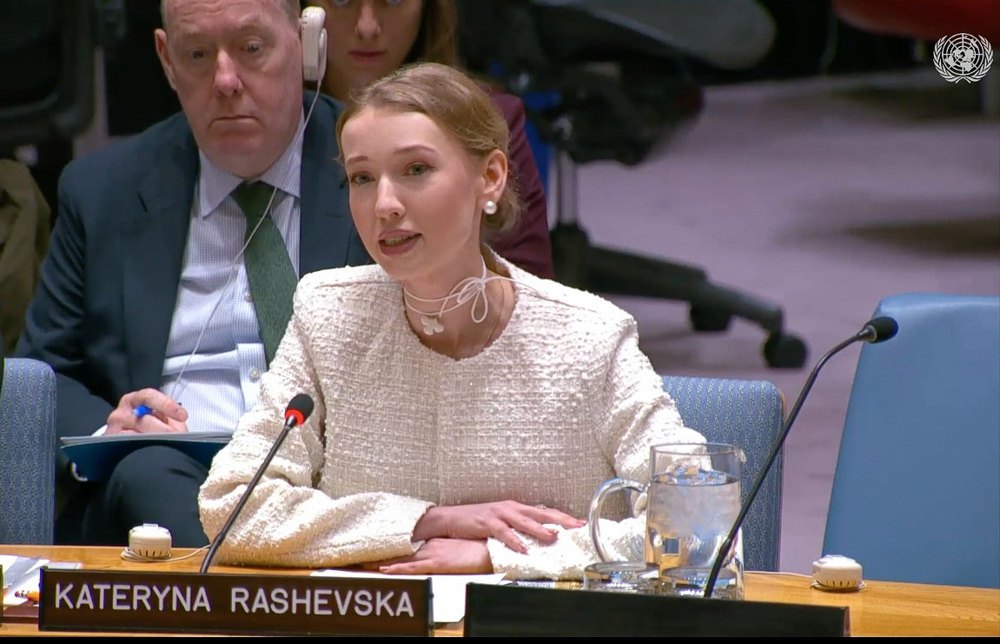
The largest group among the 380 children I mentioned were teenage boys aged 14-17. That is, these were deliberate actions of the Russians aimed at removing these children from the Ukrainian group and trying to pull them over to their side, or at least not letting them go back.
In fact, Russians are very much afraid of Ukrainian teenagers.
And the Russians are very keen to use Ukrainian teenagers. This applies not only to children from the occupied territories or deported children. We are talking about the territory controlled by Ukraine and even EU countries.
That is, they are trying to reach them wherever they can.
And here, for example, the arsons committed by teenagers are not as scary as this information campaign around them. It's about the fact that we have such internal resistance, that children don't want war, adults don't want war, whether it's Zelensky's war or the ‘criminal Kyiv regime’.
That's why I say that their main interest remains to ensure that the case at the International Criminal Court for the deportation of children is brought to naught. To make Ukraine look like a state that lied, that could not cope with the children, and then could not adequately count them, could not adequately return them, could not provide them with proper assistance.
At the same time, they intimidate the children under their control. They convince them that Russian speakers are treated very badly here. And any such cases are blown out of proportion by the Russian Federation to such an unimaginable extent that children are afraid to return. The narrative that Ukraine is militarising children is also very much pushed. As soon as you turn 18, you will be immediately sent to the Armed Forces. They promote the idea of banning boys from travelling abroad. They say you will be like in a cage. And so some of the children who were returned from Russia, unfortunately, chose to go abroad rather than to Ukraine because of the successful Russian propaganda.
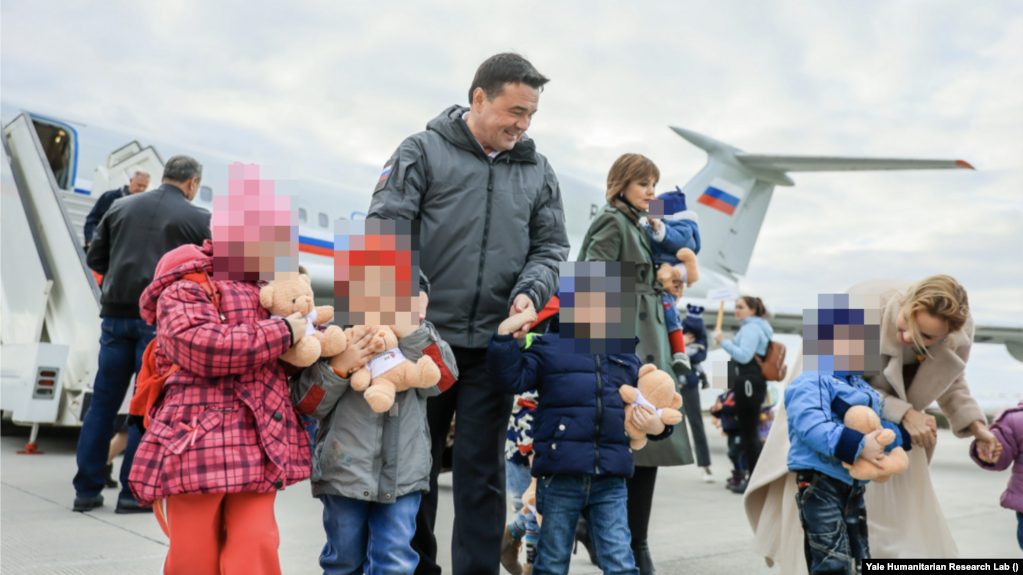
And the longer Ukrainian children remain under the influence of the Russian Federation, the more agents of Russian narratives they become, willingly or unwillingly. For example, there was a case when children from the occupied Luhansk region were taken to India, where they told them that the so-called LPR is part of Russia, that it has always been like this, that Ukraine has abused them, and that they are very happy with Russia. These are our children, who were initially included in the ‘Movement of the First’ and ‘Young Army Cadets National Movement’. They have gone through all these textbooks. You don't have to go far, just look at Donbas Studies. Children from the fifth grade onwards are taught that the Ukrainian Nazis attacked, bombed peaceful towns, used chemical weapons, and everyone from a metalworker to a teacher joined the ‘Narodnoe Opolcheniye’ (People's Militia) to fight for their native land. This is a compulsory school curriculum.
Another clear indication that the Russians' goal is to ensure that the issue of the return of children is not pedalled in the future, as well as the issue of bringing to justice. This is a statement by Maria Lvova-Belova. A few months ago, she said that she had handed over (or will hand over, it is unclear) a list of three hundred Ukrainian children who should be reunited with their relatives in Ukraine. At the same time, she stressed a hundred times that these were not deported, abducted or missing children, that they were all under the control of the Russian Federation due to certain family circumstances. And now they need to be returned, because they have expressed such a desire and the Russian authorities have received special requests from Ukrainian relatives.
What do they achieve by doing this?
By downplaying the numbers, the Russians are trying to demonstrate that we are the ones who are overstating the scale of the problem and the number of children under Russian control. They say that we are returning the children from our list, and you should audit who is deported, who is not deported, and who we evacuated for security reasons. And then let the Ukrainian side explain why it took so long to find legal representatives, why they did not apply, why they did not want to take the orphans. Unfortunately, this situation also exists. After all, the children were not removed from their families by the Ukrainian authorities without reason.
In this context, by the way, it is beneficial for the Russians to work with Qatar as an intermediary in the return of children. There is only one orphanage in the whole country, and they don't really understand this story. And I am convinced that the Russian side is playing on the theme of social orphanhood, when parents are present but cannot take care of the child: look, their children were in some incomprehensible institutions, and we gave them a family, a mother and father, and something else is wrong with them. Where did we kidnap them? There are many cultural aspects that Russia uses to its advantage.
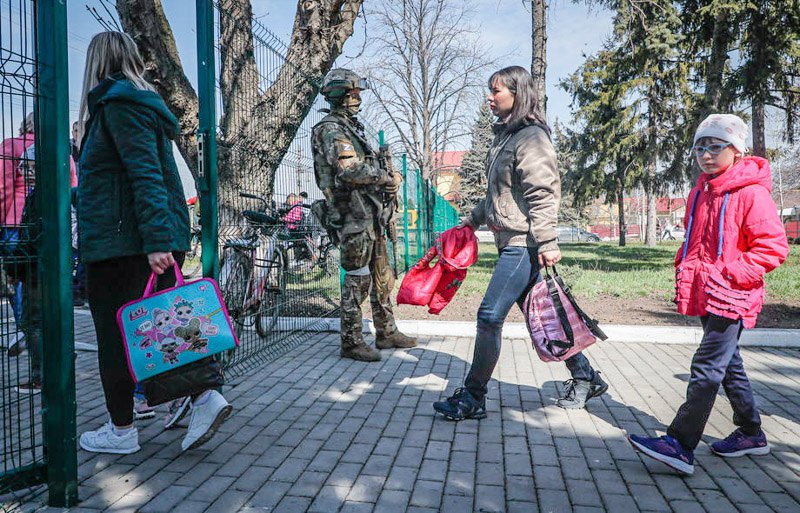
It's even worse there. Similarly, the Russians have stepped up their propaganda within the UN with the same goal in mind: to remove the issue of deported children from the agenda. The United States helped us a lot in the UN Security Council to hold special hearings on Ukrainian deported children. We know that the head of the US mission has changed, so it is not yet known what their line will be. And I hope that, if necessary, this initiative will be taken up by other permanent members, such as the UK. Because if we do not raise this topic at the highest level, it will simply be lost, and the UN will be absorbed by pro-Russian narratives.
I am personally very afraid that one day we will find ourselves in the reality of Crimea before 2022, when deported Ukrainian children were not discussed at the ICC, when the Russians simply stole status children and still do not provide us with any information about their fate, when they continued to place them in their families, and we watched and did not know what to do about it. And in eight years, it became so normalised that the Russians thought it would be the same after a full-scale invasion. So it was our achievement that we did not allow this to happen. Now our big victory is that some countries in the Global South are supporting us. Brazil supports the return of Ukrainian children. South Africa has expressed a desire to be a mediating state in this process.
It is important to ensure that the international community does not forget what Russia is doing to children. This is also a matter of sanctions, by the way. No matter what Russia asks, sanctions cannot be lifted against those who militarise Ukrainian children, turn them into soldiers, deport them, take them away from their families by force, and make a real policy out of it. Moreover, the negotiation process has created another risk for us.
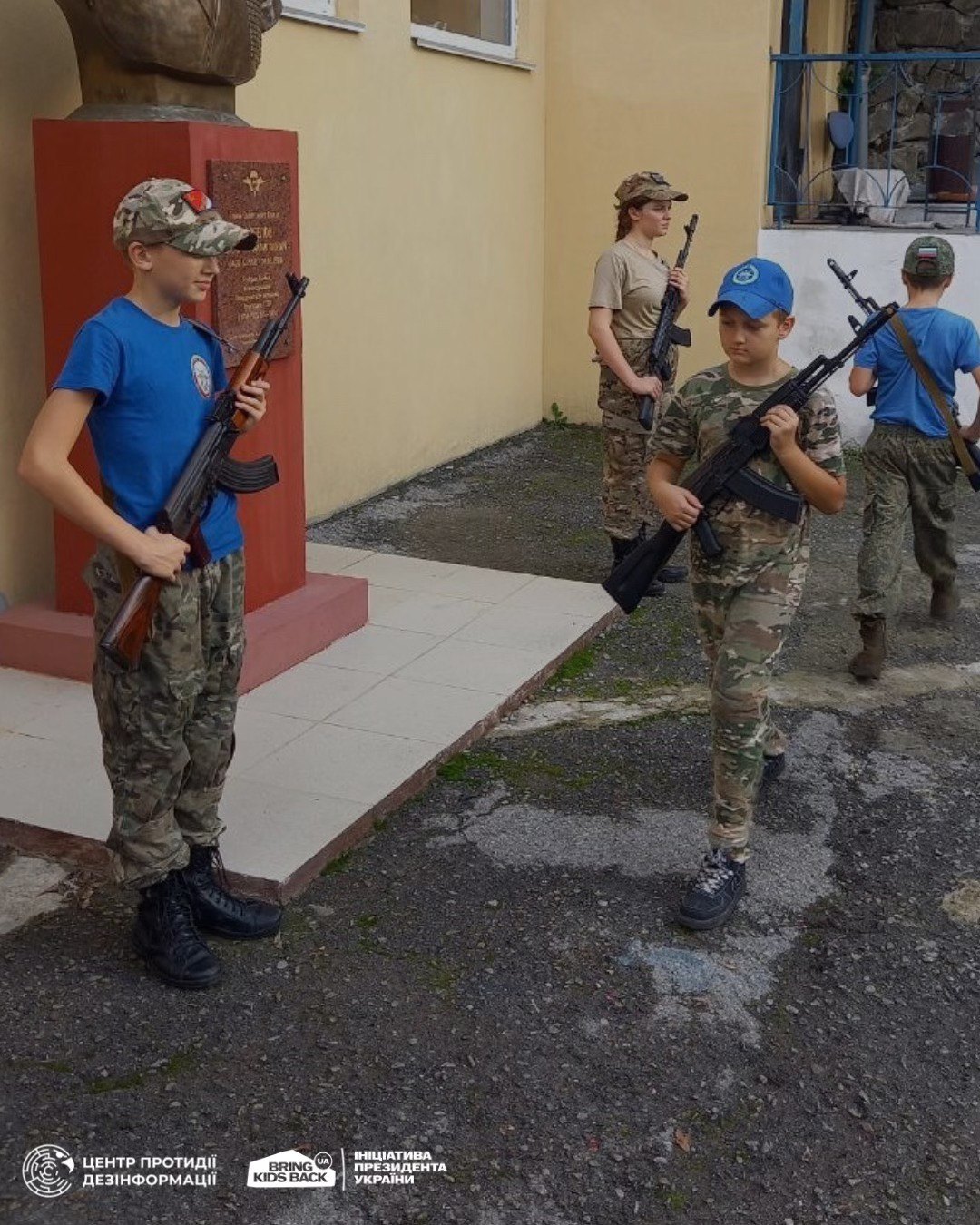
Which one?
I will not be surprised that sooner or later, at some stage of the negotiations, the issue of responsibility will arise. And as for the International Criminal Court, Putin can use Article 16 of the Rome Statute, which actually provides that in order to restore peace and conduct peace negotiations, a relevant UN Security Council resolution can be adopted. In this case, the investigation against the person is suspended for a year.
And here it will be enough for him to have votes in favour or abstentions. If none of the permanent members of the UN Security Council veto the resolution, Putin will be granted a de facto temporary amnesty. And for this, frankly, he needs to convince only the United States and China. Since the 1980s, the UK and France have been pursuing a strategy that if they don't like something, they simply abstain. From what I know, unfortunately, these are well-founded fears that this article may be applied.
We need to assume that the overall goal and vision of the Russian Federation in terms of children has not changed - they do not want to return them. That is why we and our partners have always insisted that it is not enough to talk about the return of deported and forcibly displaced children during negotiations. We need to talk about guarantees for the local population that remains in the occupied territories, including children. Because every day the Russian Federation is violating their rights, turning Ukrainian children into its own citizens, its own soldiers who will be ready to kill in defence of some distorted Russian traditional values.
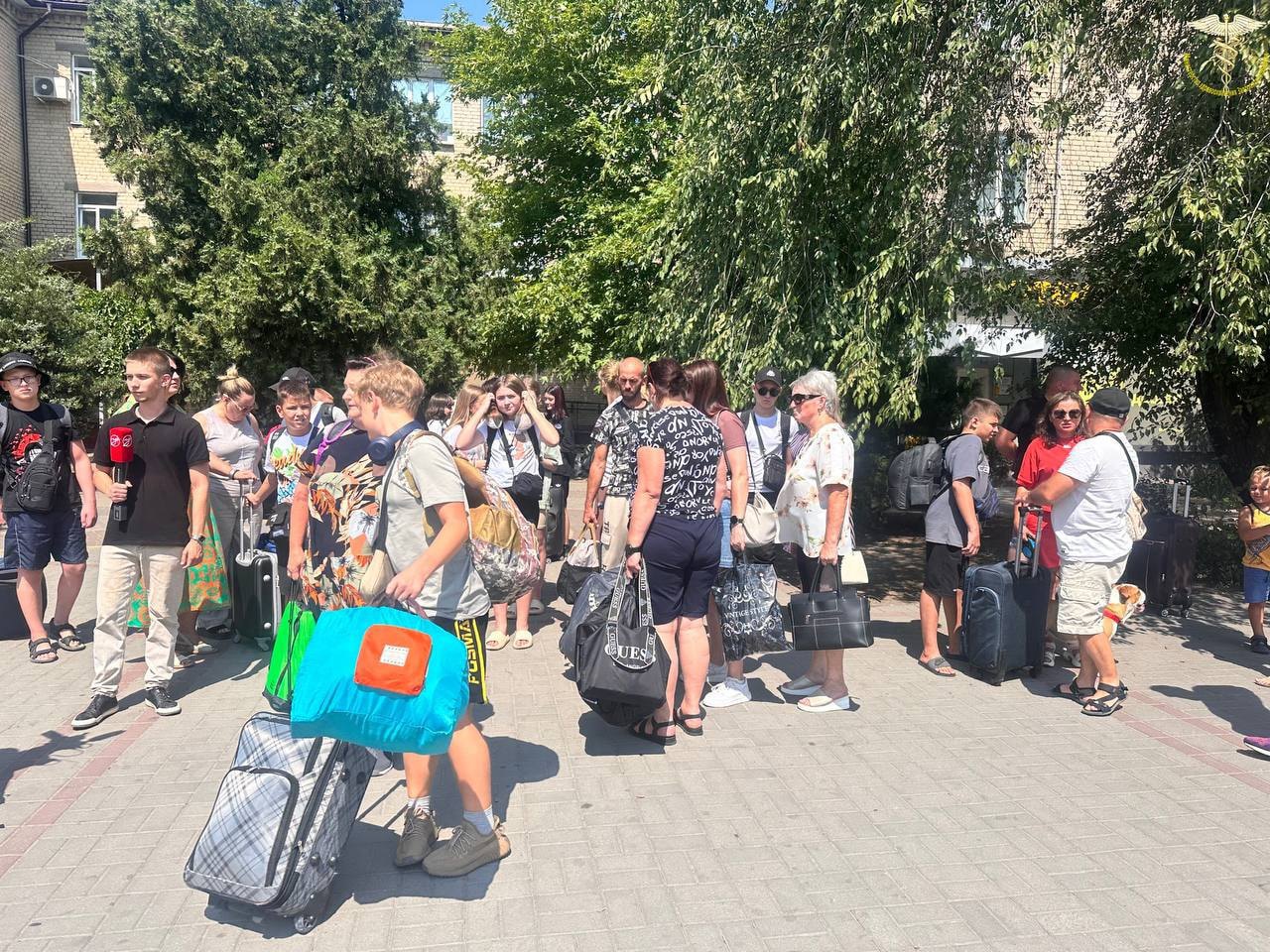
What do you mean?
The negotiations should also cover aspects of humanitarian corridors, checkpoints through which children can safely return to the government-controlled territory of Ukraine. The second issue is the forced passportisation. This needs to be stopped, and Ukrainians who have already been imposed citizenship should be given the right to renounce it without any consequences and never again be considered Russian citizens. The third aspect is education. Russia cannot educate Ukrainian children as its own patriots. It cannot extend its programme to the occupied territory. Of course, I would never in a million years believe that Russia would keep Ukrainian schools open. Therefore, the intermediate and most adequate position is to give children the opportunity to study online in Ukrainian schools. Not to jam the connection, not to block websites, not to arrange searches by the FSB.
None of this sounds very realistic.
And it's terrifying! However, if we don't even talk about it, don't voice it and demand it, then what? We have identified 19,546 deported children, although we understand that the number is higher. And when it comes to children under occupation, it is 1.6 million, who are subject to a whole bunch of violations. We have to show Russia that it is there temporarily. Yes, this completely contradicts its propaganda narrative that Russia is ‘here forever’. But what kind of peace agreement is there if Russia has introduced its own educational standards there? This is an annexation. We cannot recognise de facto or ad hoc annexation. In fact, this is a very dangerous thing. Because if we sign something like this, then Russia will go to the International Court of Justice or another body in 80 years and insist that we have recognised the annexation and the transfer of sovereignty to Russia by our conclusive actions (through behaviour - LB.ua). In other words, in any case, it is necessary to voice the illegality of the spread of Russian legislation and the incorporation of Ukrainian territories into the Russian Federation.
Has the Ukrainian side already voiced this?
This is what we advocate both during public events and in private consultations with the competent authorities of Ukraine. And they are ready to raise this issue. It is clear that the negotiations cover a wide range of issues, starting with attacks on energy infrastructure. But this cannot be out there, out of context.
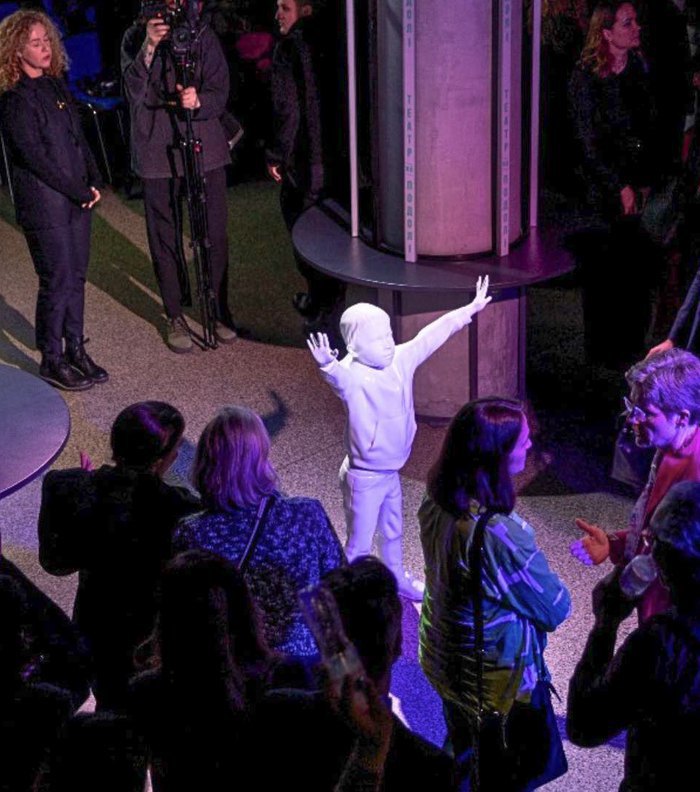
Ghettos of the occupied territories
When we talk about the militarisation of children in the occupied territories, what scale are we talking about?
In fact, it depends on what we consider militarisation to be. Because militarisation includes the lesson ‘Talking about important things’, visits to children's schools by Russian members of the so-called military operation, and the installation of more than 1800 desks of heroes in schools. These are lessons on the basics of security and defence of the homeland, where children make parts of equipment for Russian soldiers, camouflage nets, and begin to fly drones. That is, militarisation is taking place within the framework of formal education. How many children are affected by this? These are at least 600,000 Ukrainian schoolchildren in the occupied territories who have been forced into the Russian education system. And after three years of occupation, it is virtually impossible not to go to a Russian school today. And there are also kindergartens where special groups like cadet classes are opened in schools. That is, most children have suffered from militarisation and political indoctrination, because it permeates the entire education system.
Who is the most vulnerable in this story?
They try to focus their efforts on families in difficult life circumstances. They convince parents and children from such families that they should enrol in cadet classes of the Investigative Committee, in Cossack classes. Because there, children receive a scholarship, they live there permanently, and they are paid to go home for holidays and vacations. The child is fully supported. And then they can be immediately enrolled in some military educational institution, and they will continue their career in the Russian army. So, unfortunately, this is how they manipulate the vulnerable situation of some families.
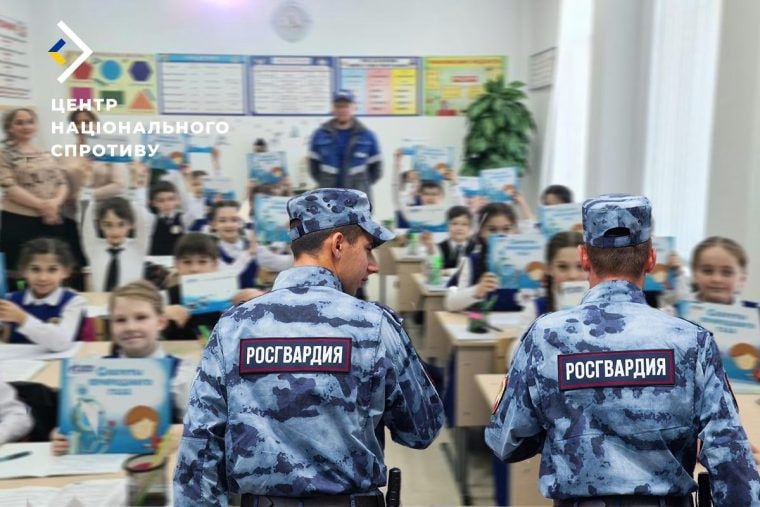
And are they effective in this?
Unfortunately, yes. How else could it be if they have created a ghetto in the occupied territory? If you don't have a Russian passport, you will be left without basic medical or emergency care. If you finish school, you have to get a Russian passport. And then it starts: why aren't you a member of the Unarmy, why aren't you a member of the Movement of the First or some other movement? In the occupied Kherson Region, they are inventing their own movements to curry favour with Putin - the Patriot movement, which has a lesson in ‘faith and victory’. At the same time, according to the Family Code of the Russian Federation, parents are obliged to raise their children as patriots of Russia. Therefore, if parents fail to do so, the child can be removed from the family. And people live in constant fear.
Have you already recorded such cases?
We have recorded many cases where this was threatened. Especially when children are not in their biological families. Guardians are threatened with this all the time: if you do not take a Russian passport, if you do not re-register your guardianship under Russian law, we will remove the children and transfer them to another family. The situation is similar with re-education camps. At the moment, I cannot say for sure that parents are still being forced to send their children to the camps, as they were in 2022. Formally, in order for a child to go, his or her parents or legal guardians must sign a consent form. At the same time, it's hard to imagine not signing a consent if you are threatened with the deprivation of parental rights or when armed men come to you and tell you to sign.
You wrote that Maria Lvova-Belova continues to visit the occupied territories.
The last time she was in the Kherson Region was at the end of March. This is probably her tenth or even eleventh tour. This means that they are not going to give up these territories or children from these territories.
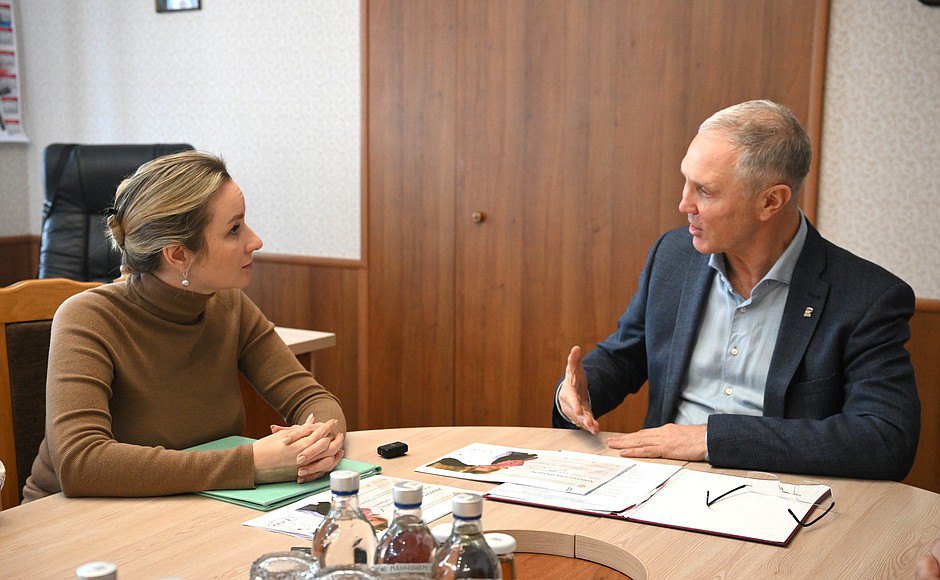
And here we should be clear: as soon as Russia seizes territory and establishes effective control over it, children are in its crosshairs first and foremost.
She sees them as her resource
And it is not someone else's business, but first and foremost ours as a state to prevent deportations and the use of children by Russia for its own purposes. Therefore, we need to continue the deinstitutionalisation reform. Children should be in families, not institutions. Therefore, we need clear and working algorithms for evacuating institutions. We also need awareness-raising campaigns about the threats of recruitment of Ukrainian children.
We spend a lot of effort on maintaining relations with our partners on the topic of stolen children. But we also need to tell our own citizens about this problem and how dangerous it is. Because when parents from frontline areas hide their children from evacuation, it is not normal. It's about trauma, but also about the lack of trust and belief that someone needs you in another territory, that you can put down roots there, integrate and that it will be better. This creates a huge fear and unwillingness to leave your dangerous life under fire, and even the risk of falling under Russian control is not as scary as this uncertainty. Ultimately, if we do not build trust in each other, it will be very difficult to talk about reintegration, about the unity of Ukraine and our potential for resilience. Although in the first months of the full-scale invasion, we demonstrated that we have it.








